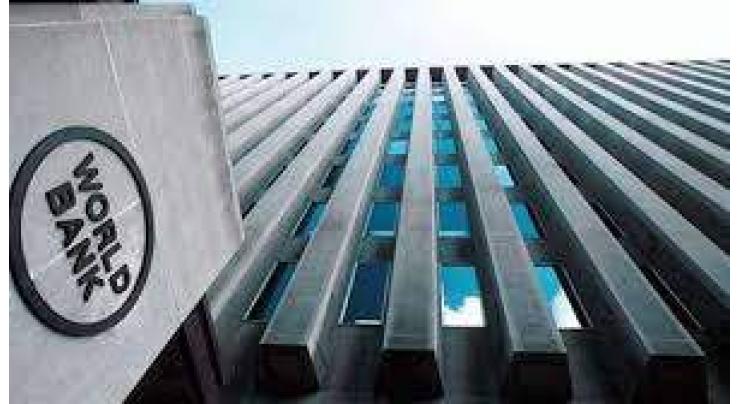
World Bank Urges For Reform Of Dual Use Goods System To Boost Palestinian Economy
Sumaira FH Published April 17, 2019 | 05:24 PM

The World Bank on Wednesday called for a reform of the Israeli control over transfer of dual use goods, which may be used for military and civilian purposes, in order to help Palestinian economy
MOSCOW (UrduPoint News / Sputnik - 17th April, 2019) The World Bank on Wednesday called for a reform of the Israeli control over transfer of dual use goods, which may be used for military and civilian purposes, in order to help Palestinian economy.
Israel imposes restrictions on transfer of dual use goods to the West Bank and Gaza, citing security concerns.
"A new World Bank report highlights the stalling of the Palestinian economy and calls for a review of the Israeli application of the dual use goods system. The report indicates that the economy, which in 2018 saw no real growth, is now facing a severe fiscal shock because of the standoff over clearance revenue transfers, while dual use goods restrictions have for over a decade hampered the ability of legitimate businesses to generate enough jobs for the growing population," the organization said in a press release.
The economic monitoring report pointed to broad descriptions of some of the categories, which created additional obstacles.
"For example, the dual use list includes a category entitled 'communications equipment, communications supporting equipment, equipment containing communication functions'. The broad and vague nature of the definition means that it affects access to most civilian machinery, equipment spare parts, most medical equipment, and most home appliances. The list also includes a number of chemicals that can be found in everyday products, such as nitric acid in toothpaste, which could potentially limit access to these products as well," the report read.
The report remarked on a difficult procedure for obtaining a permission for access to dual use goods.
The report stressed that this dual use restrictions made it difficult for Gaza, in particular, to provide services and public infrastructure. Such facilities as "wastewater treatment plants, sea water desalination facilities, or other utility-scale infrastructure" were extremely expensive as a result of the policy.
Recent Stories

PTI to stage nationwide protests against alleged electoral frauds

Senate continues discussion on Presidential address to Joint Sitting of Parliame ..

Masood Khan calls for Pak-US cooperation for regional peace

Interior Minister starts Margalla Trail Patrol for security

Currency Rate In Pakistan - Dollar, Euro, Pound, Riyal Rates On 26 April 2024

Today Gold Rate in Pakistan 26 April 2024

ICC Womens T20 World Cup Qualifier, Match 2: Ireland Women open with Comfortable ..

Robinson, bowlers help New Zealand go 2-1 up against Pakistan

Shahzeb Chachar to hold khuli kachehri on April 26

Heatwave amid Israel's aggression in Gaza brings new misery, disease risk

Tourism must change, mayor says as Venice launches entry fee

Court adjourns Judicial Complex attack case till May 17
More Stories From Business
-
Shipping Activity at Port Qasim
14 minutes ago -
Machinery equipment assembling grew by 70.98% in 08 months
1 hour ago -
Gold rates up by Rs.2,500 per tola to Rs245,000
2 hours ago -
Miner Anglo American rejects BHP's $38.8 billion takeover bid
2 hours ago -
Exchange rates for currency notes
4 hours ago -
Foreign exchange rates
5 hours ago
-

Currency Rate In Pakistan - Dollar, Euro, Pound, Riyal Rates On 26 April 2024
5 hours ago -

Today Gold Rate in Pakistan 26 April 2024
5 hours ago -
Chinese minister felicitates Ahsan Iqbal on reappointment as Planning minister
15 hours ago -

Pak-US officials engage to enhance trade, investment ties
15 hours ago -

Stocks fall as tech shares sink, US economy slows
16 hours ago -

Higher taxes, awareness help decrease cigarettes sale in Pakistan
17 hours ago










